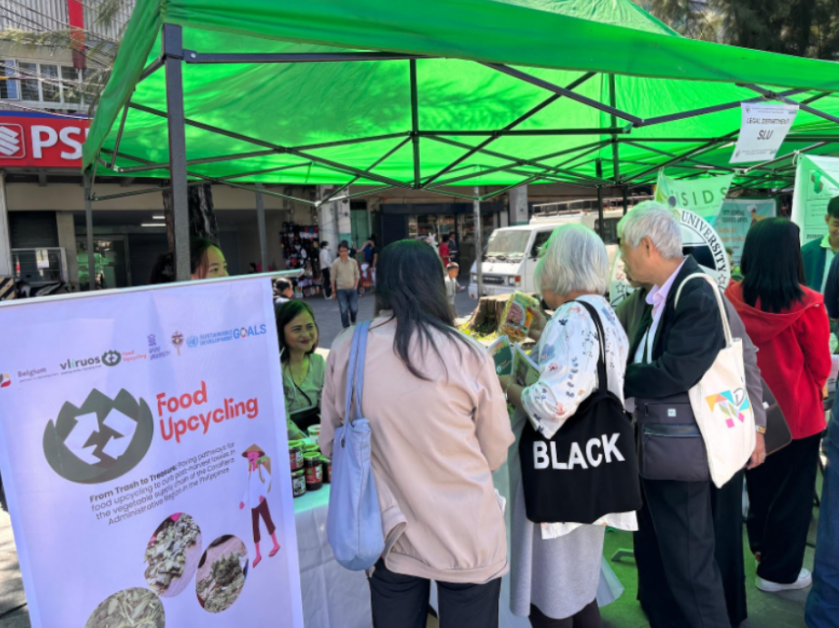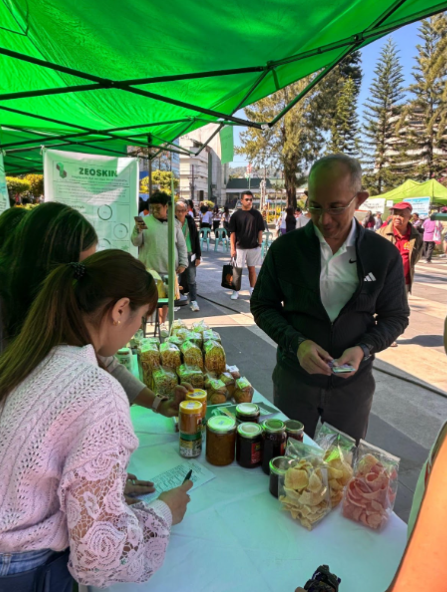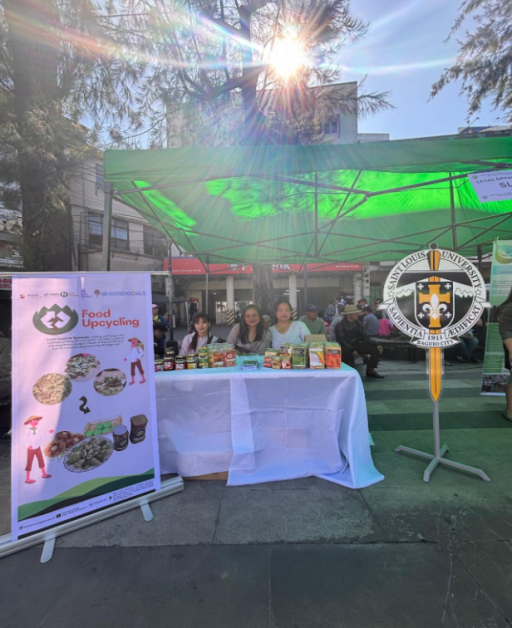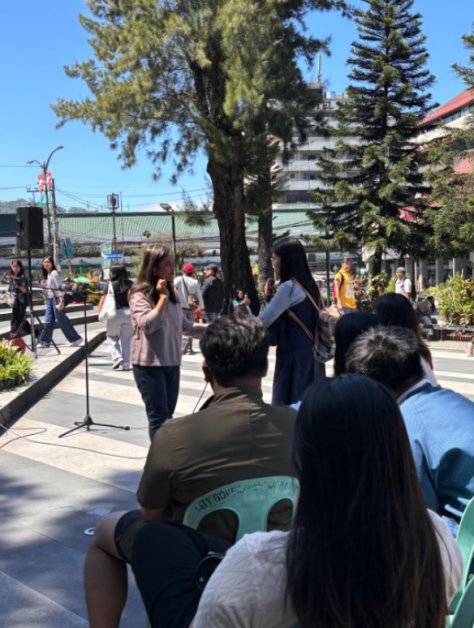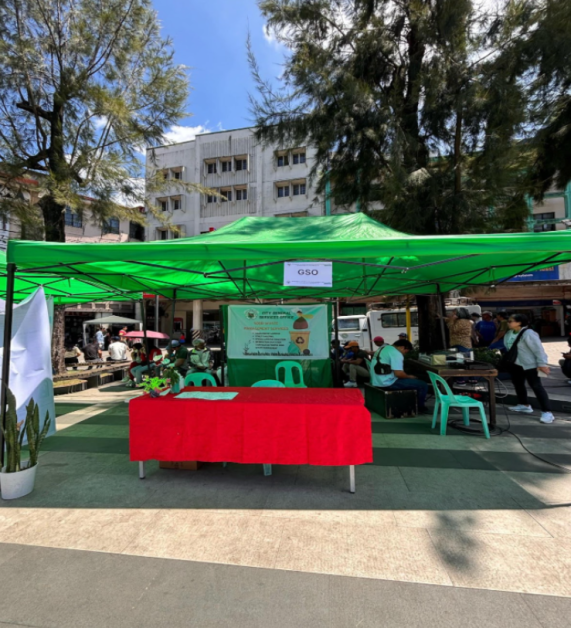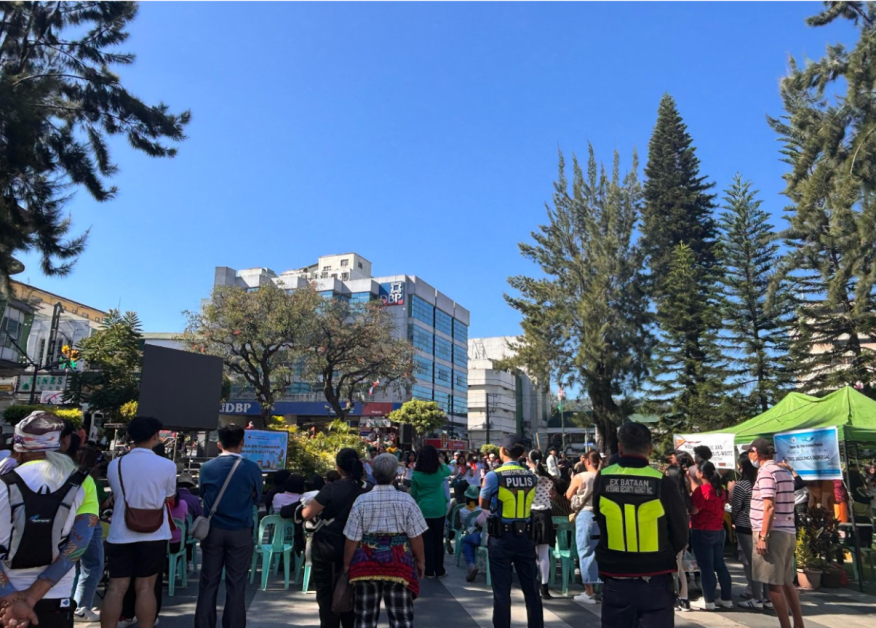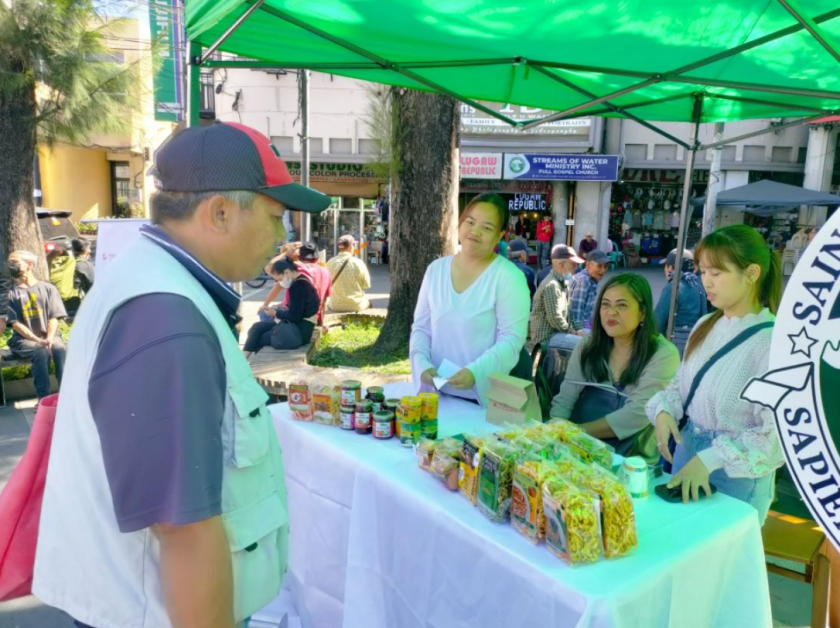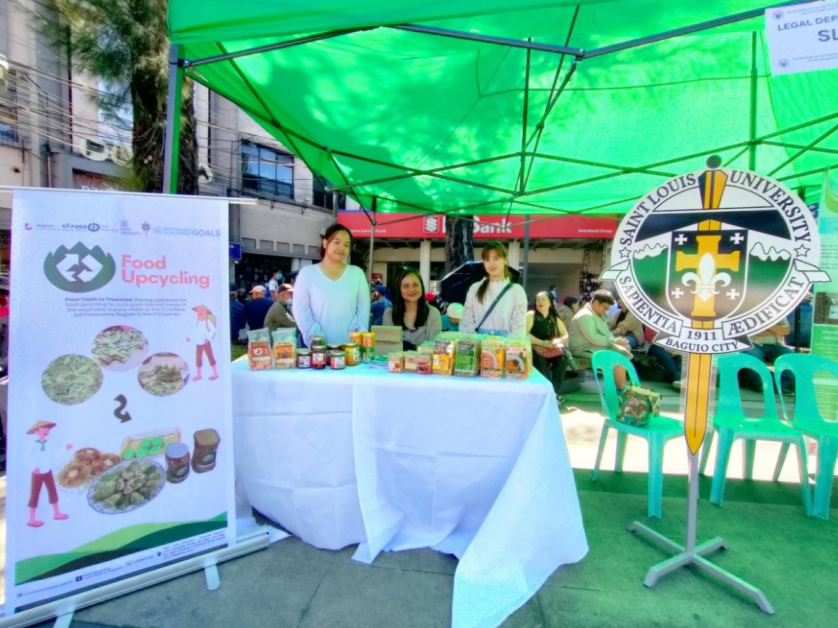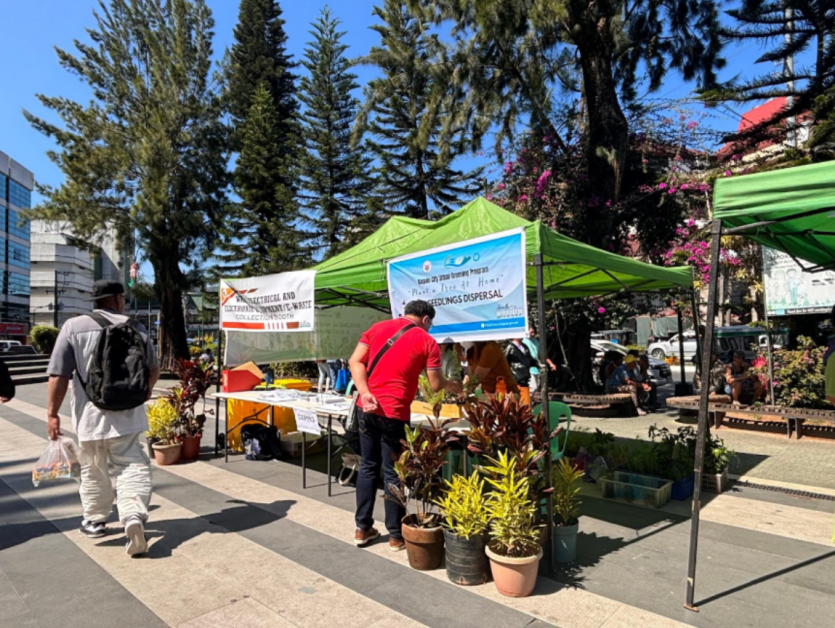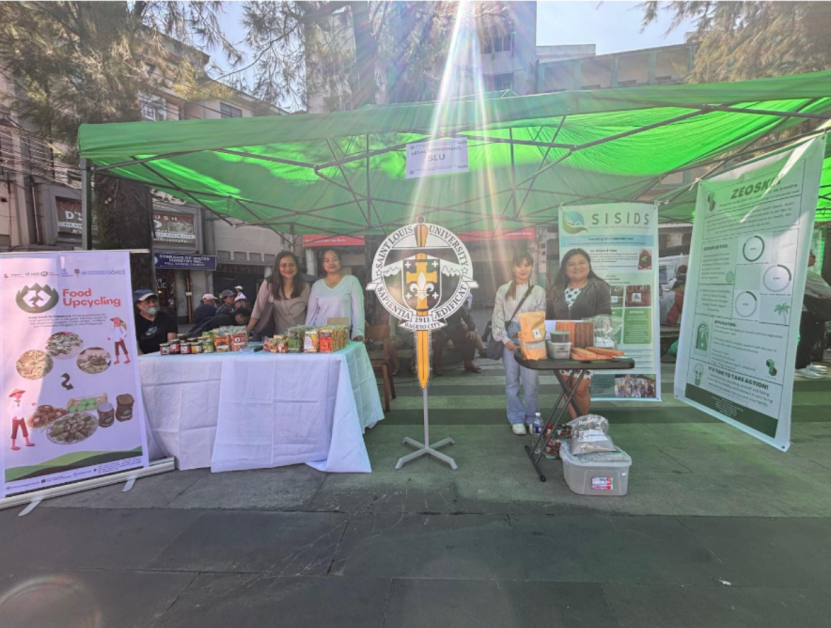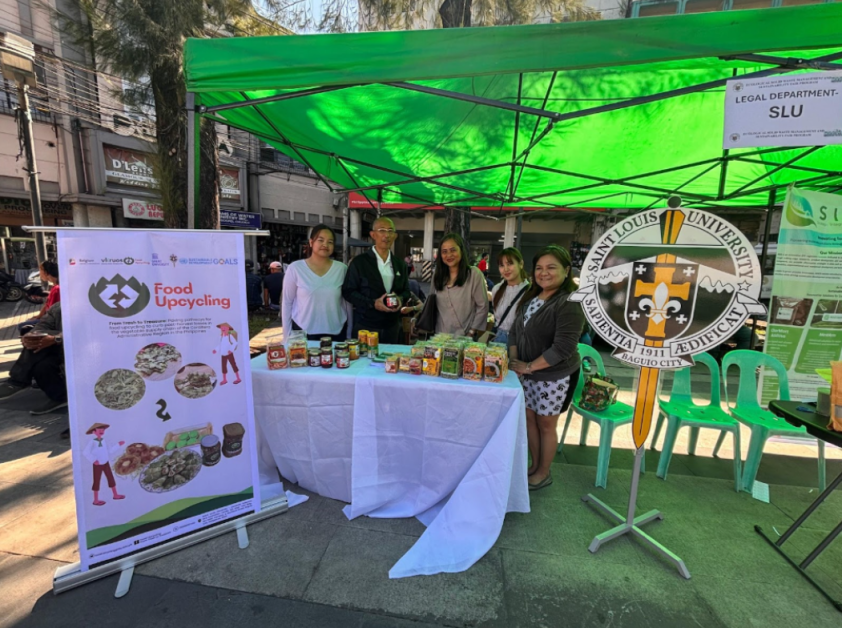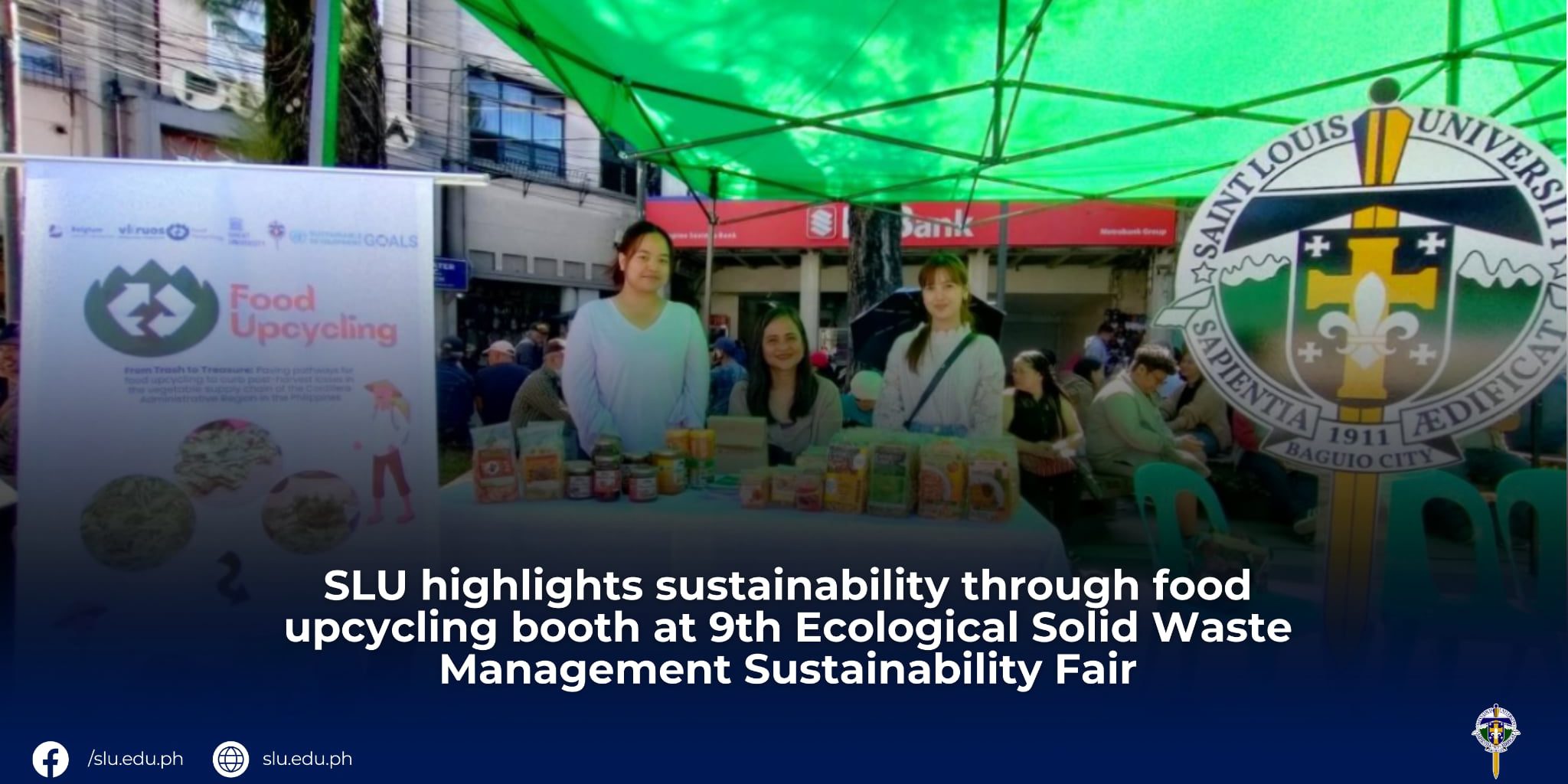The food upcycling booth of Saint Louis University (SLU) showcased initiatives towards eco-friendly food systems at the 9th Ecological Solid Waste Management Sustainability Fair held on 16 March 2025 at Malcom Square, Baguio City. Institutionalized by the City of Government of Baguio, this program elevates the level of public awareness on sustainable waste or resources management, as well as promotes sustainable and eco-friendly practices to nurture and protect the environment’s delicate balance.
Mayor Benjamin Magalong opened the program by recognizing women sustainability advocates in celebration of International Women’s Month, emphasizing their vital role in waste management. He shared the inspiring stories of three local women who turned waste-picking into sustainable livelihoods, showcasing the power of creativity and resourcefulness in driving change. He then highlighted the importance of both individual and collective efforts in building an eco-conscious city, discussing key waste management principles such as reuse, recycling, repair, and sustainable manufacturing.
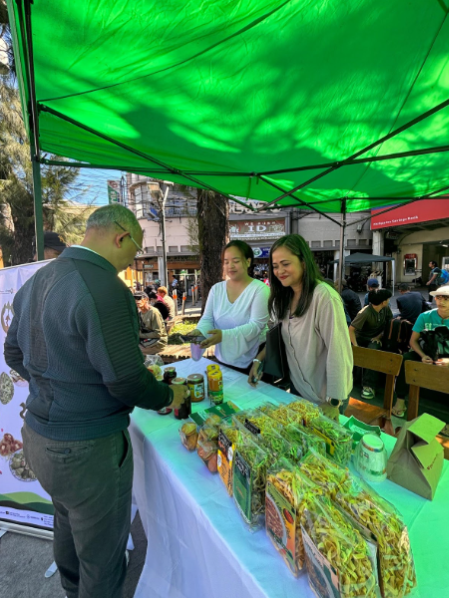
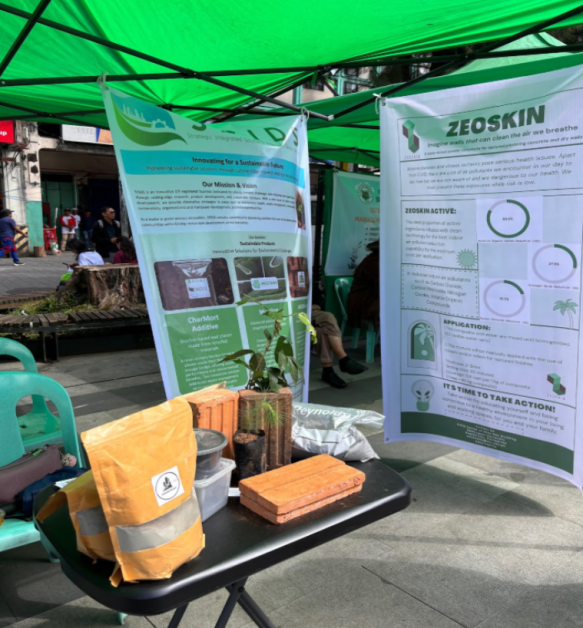
The program transitioned to a lecture on electronic waste management that focused on how broken gadgets, chargers, and electrical items can be responsibly recycled through designated facilities. Participants learned about proper disposal methods, aligning with global practices like retailer drop-offs (e.g., Best Buy) and recycling centers that salvage valuable materials like copper.
Environmental activities then followed that offered practical applications of sustainable practices. These included:
- Tree seedling distribution to promote urban greening and carbon sequestration;
- Zero Waste Baguio initiatives, including techniques for tracking systems to optimize storage and reduce single-use plastics;
- Usapang Period menstrual care and the environment discussions focused on eco-friendly alternatives and the environmental impacts of disposable products;
- Solid Waste Management Services offers information education campaigns on proper solid waste management; and
- SISIDS (Strategic Integrated Solutions Industrial Design Services) Innovating for a Sustainable Future.
In particular, Dr. Richel Lamadrid, a faculty member of the School of Accountancy, Management & Computing & Information Studies (SAMCIS) and the Director of the University Research & Innovation Center (UnRIC), presented a Vlaamse Interuniversitaire Raad Universitaire Ontwikkelingssamenwerking (VLIR UOS) or the Flemish Interuniversities Council University Development Co-operation research funded project about the determinants of consumer intentions to purchase upcycled food. Results showed that a consumer’s environmental concern correlates with the attitude toward buying upcycled food. More essentially, accessibility of upcycled food in the market was critical to consumers’ purchase intention.
From this presentation, participants engaged in discussions surrounding the viability of utilizing food that would otherwise be discarded. Concerns arose regarding the safety and quality of upcycled food. The overwhelming response highlighted the importance of vegetable quality. Further discussions emphasized that labeling and transparent processing are crucial for building consumer trust in upcycled food products. Ultimately, the core philosophy of the initiative was presented: transforming “trash to treasure” or “surplus to treasure,” demonstrating how overlooked resources can be converted into high-value food items.
The SLU food upcycling booth drew strong interest, with attendees inquiring about the project’s current status, implementation strategies, and potential external partnerships. The program’s objective—reducing food waste and ensuring fair returns for farmers—resonated strongly with those present, demonstrating a clear public interest in sustainable food practices and a desire for practical solutions to food waste.

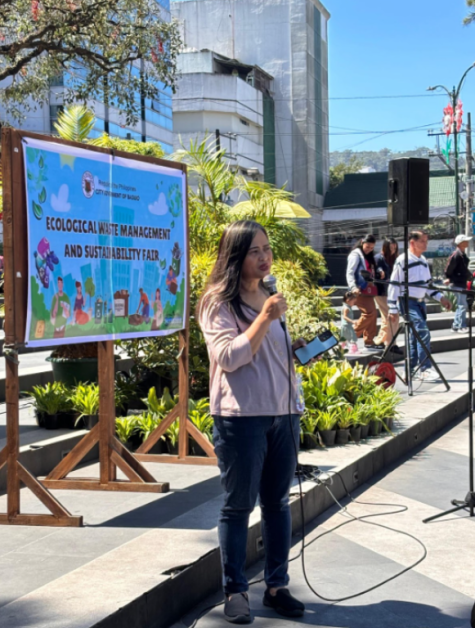
Participants explored upcycling food into products like sauces and other value-added items, with many eager for the program’s success. A passerby from Manila shared insights on seafarers’ health challenges, emphasizing how organic and upcycled foods could help address limited fresh produce access and high-stress conditions in their demanding work environment.
The food upcycling booth also showcased products from Benguet State Univeresity (BSU) that are organic and healthy, such as veggie fettucine pasta, dried miki noodles, udon crackers, cookies, powdered turmeric, malunggay and lemon tea, strawberry jam, passion fruit jam, and strawberry chia seeds. By selling these items, it showcased food upcycling’s role in reducing post-harvest losses, supporting local farmers, and promoting sustainability.
SLU’s participation in the Ecological Solid Waste Management Sustainability Fair underscored the University’s collective commitment to environmental sustainability, which affirms United Nations Sustainable Development Goals (UN SDG) on Responsible Consumption and Production (12), Sustainable Cities and Communities (11), Decent Work and Economic Growth (8), and Partnership for the Goals (17). (Article and Photos by Melisa Joy Macalintal and Joy Lee Yango, SAMCIS Marketing Management Interns)


